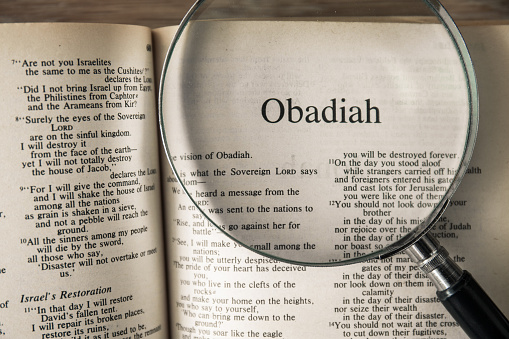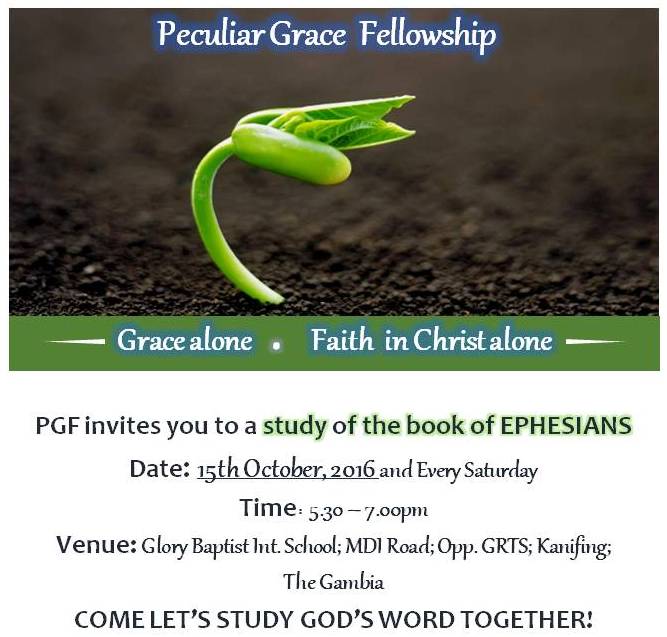
Introduction
In the face of utter defeat, the emotional hurts God’s people suffer can seem insignificant. Yet, these wounds can sap the will to carry on. This is where the prophecy of Obadiah comes in as a source of hope and encouragement. Through its pages, the gospel addresses the discouragement that threatens to afflict the nation and shows how God will not rest until every wound has been healed. In this post, we will delve into the first two parts of Obadiah (vv. 1-14) and explore how its message brings hope and healing to God’s people.
This situation will change (vv. 1-8)
Obadiah is a short book in the Bible that packs a powerful punch. It starts with an army being summoned to bring Edom down (vv. 1-4) and ends with exiled Judah rising to rule God’s Kingdom (vv. 20-21). The context for this coming reversal is the nation of Edom, which believes it will never be defeated. They understand this world! They have wisdom and strength (vv.8-9)! Who could possibly defeat them (v.3)?
So why tell all of this to Israel? And why write this prophecy as if it’s addressed to Edom?
In his book, “Learned Optimism” Martin Seligman gives three perspectives that make bad situations hopeless. The first of these is permanence — the idea that this situation will never change. When Edom boasts that their homes are unconquerable, they are talking about themselves, but they are saying something to Israel, “your situation will never change; Edom is on top and always will be.” And it’s not just Edom’s geography but their wisdom that makes them immovable. What does that say to Israel? It says that Israel doesn’t get how things work. All that trusting in God, seeking to do good and believing the gospel is not reality. It’s not going to make any difference. Edom is talking about themselves, but they are attacking Israel’s faith.
I remember a director in a company I worked for, standing in an open-plan office, talking loudly about how “remarkably successful” he was. The implication was, “I understand work in a way you all don’t. I have wisdom that you don’t. So, I will always be on top”. His words had not changed anyone’s situation materially. He hadn’t even spoken about the people around him. But his comments about himself discouraged people from believing they might have what it took to succeed.
It is at this moment that Israel hears God turning to Edom and saying, “You’re so wrong. You’re wrong because not only will this situation change, but it will also be turned upside down. You hold onto your homes in the cliffs; my people will hold onto me, and they will be lifted high while you are brought down to the depth.” (vv.5-7). This book is addressed to Edom because God is standing and facing down the bullies that Israel is too broken to confront. If Edom is a living attack on their morale, God’s words are giving Israel strength to keep going for one more day and not to give up. This situation will change.
Obadiah is the shortest book in the Bible. Why is that? Obadiah is not a twelve-week fitness programme. It is an adrenaline shot. It is short so that it can be learned quickly and passed around a group of exiles in brief whispers. It is a morale boost for people who need it urgently. Obadiah was written to lift the spirits of a nation on the verge of collapse. Judah needed to know that they would not always be victims to Edom, however secure Edom looked now.
This applies to us at every level. Culturally, we see the gospel sidelined and marginalised, and those with power in the media look utterly secure and immovable. Why bother engaging in those areas? In relationships, some hurts are just too deep, too ingrained, we’ve already lost. Why bother to continue trying? Internally, as we face the same sin and the same failure, we hear that message, “like Edom, with their homes built into the cliffs, this sin will never be rooted out”. It’s a message that threatens to destroy our will to continue. But, even when we don’t have the faith to speak out against it, God speaks to it on our behalf. Even if he has to raise an army or, even the dead, God will change this.
God sees all the hurt (vv.10-14)
The central verse of Obadiah contains the main accusation,
“On the day that strangers carried off Judah’s wealth and foreigners entered his gates, you were as one of them” (v.11).
If Judah were a person lying on the ground, having just been knocked down by a bully, Edom is like the wimp who hangs out with the bully to feel tough. But it doesn’t stop there. Edom taunts Judah and then kicks him while he is down. He does this by rejoicing and gloating over their hurt (vv.12-13). They hurt Judah by looting what’s left of their wealth and attacking a few straggling refugees (vv.13-14). They have turned against the country they share an ethnic kinship with (v.12) to help a country of total strangers. What they did was unnecessary and vindictive.
None of this makes a major difference in military terms. The deadly blow has already been dealt. Edom is merely adding hurt to a wound that had already been inflicted. But God cares about that hurt, too. He cares enough to dedicate a whole book of the Bible to it. Why? The answer must be because that pain matters. It matters to us because that kick while we are down is often what makes us not want to get up. As has already been said, it is the psychological blow that will potentially make Judah give up. And it matters to God because our hurt matters to the God who loves us.
The accounts of Jesus’ death on the cross include a lot about the taunts of those around and beneath him. Even in the agony of crucifixion and the torment of separation from God, the mere words of people matter. God is not a cold-hearted military strategist, counting deaths like an accountant. He sees and judges all the hurt.
For us, this is about the cross. The message of the cross is not, “Your sins are forgiven — now man up and stop complaining!” No, as Isaiah says, “Surely he took up our infirmities and carried our sorrow” (Isaiah 53:4).
The scope of salvation is not just our sins. It is every hurt, every pain of a fallen world. It is every word and every action that makes us want to crawl into a hole and never come out. God sees, and God will act.


